June 21, 2024
ISTA Class of 2024: Celebrating 27 Graduates
Representing 20 countries on 5 continents, honoring exceptional PhDs and alumni
ISTA’s class of 2024 is especially diverse in terms of nationalities: The 24 PhD Graduates and three MSc Graduates celebrating their degrees at the Institute of Science and Technology (ISTA) come from 20 different countries all over the globe. Outstanding PhD Awards go to Graduates from Italy, Serbia, and Slovakia. Furthermore, the ISTA Alumni Award goes to Harold P. de Vladar, former Postdoc at the Institute and founder of Ribbon Biolabs.
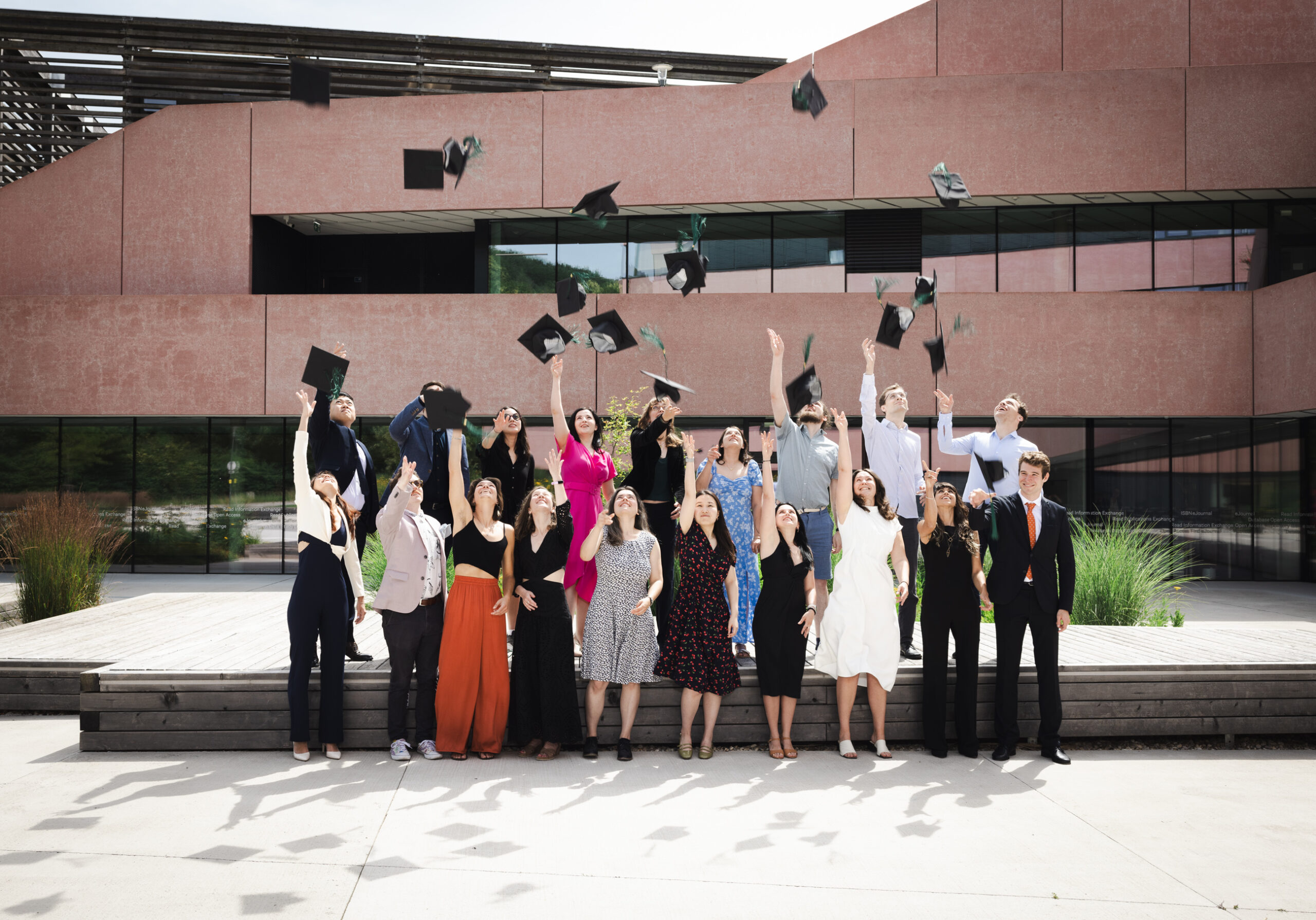
The graduates hailing from five different continents, around 60 percent of them female, received their degrees during a celebration in the Moonstone Seminar Center of the Institute. Eva Benková, Dean of the ISTA Graduate School, and ISTA President Martin Hetzer congratulated all the graduates, before handing the floor to Eve Marder, Professor of Biology at Brandeis University, and Member of the U.S. National Academy of Sciences.
In her keynote on the festive occasion, she underlined the importance of international exchange and mobility. She explained that holding a PhD is a ‘license’ to achieve what has not been done before, to step out and become a positive force for change in science and in our world: “You are part of making the future. I too experienced going to brand new institutions, being part of creating the excellence that they became – twice. I am sure that your degrees from ISTA as well will become even more prestigious as they age.”
The time at ISTA has prepared the graduates well for what lies ahead, remarked Eva Benková, Dean of the ISTA Graduate School: “You have been equipped with the skills to ask and formulate important scientific questions, seek answers, think critically, engage meaningfully with diverse perspectives, and become great scientists. I am sure that you are well-prepared for the challenges that lie ahead, and I believe you will meet them head-on and with full enthusiasm.”
Outstanding PhD Awards
The ISTA PhD Thesis Award recognizes outstanding achievements based on nominations by ISTA Professors. This year’s winners are Michal Hledík from the Barton group, Marco Valentini from the Katsaros group and Djordje Zikelic from the Chatterjee group.
Boosting projects and bridging disciplines
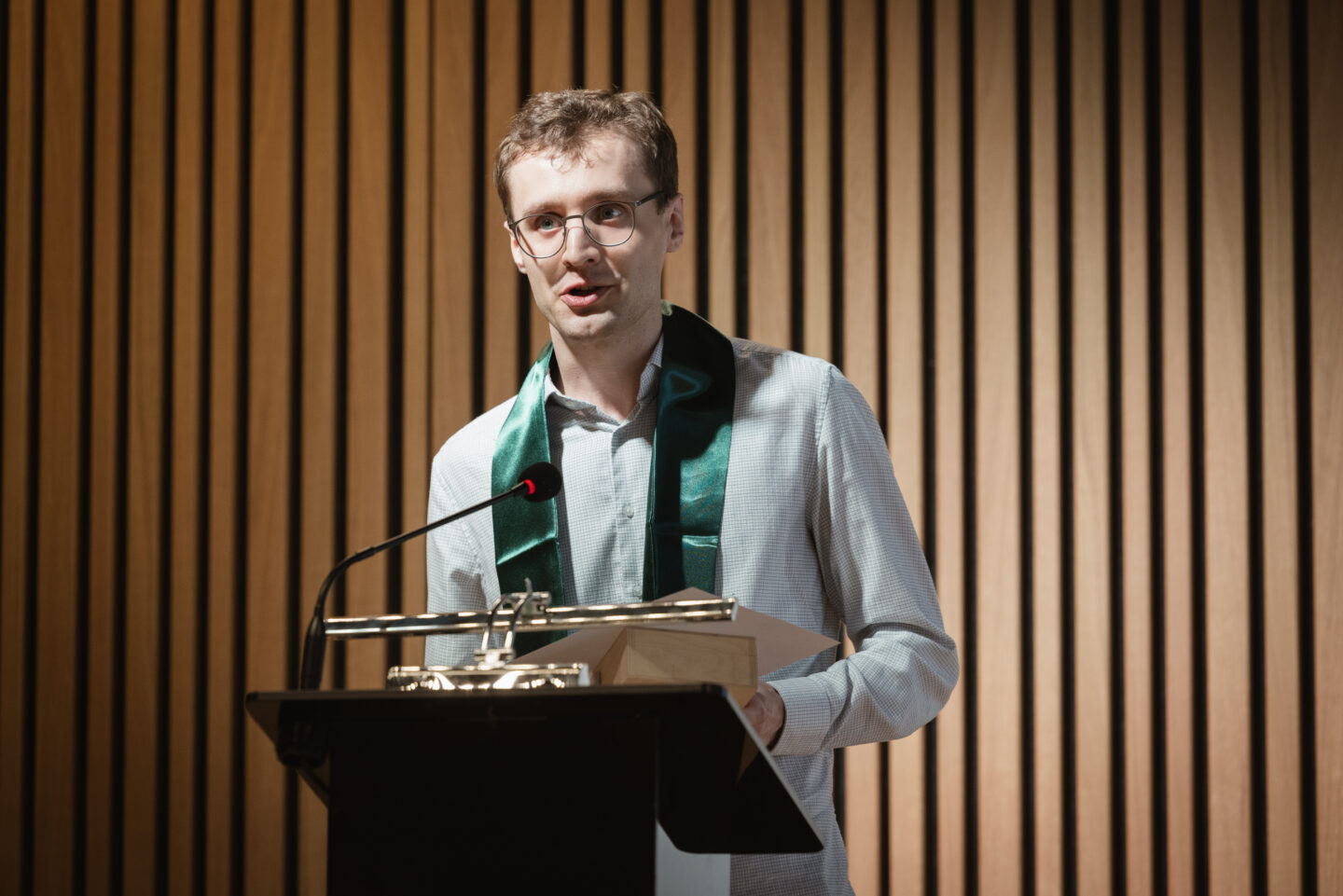
Michal Hledík from Bratislava, Slovakia, wrote about “Genetic information and biological optimization”. His supervisor Nick Barton underlines: “Michal’s thesis brings together multiple fields at a foundational, deep level, putting into formalism and framework various ‘intuitions’, ‘suspicions’, and approximations of multiple outstanding scientists.” Michal’s co-supervisor Gašper Tkačik, also from ISTA, adds: “He has been one of those rare scientists that whichever project they contribute to gets a major boost and, often, a real change in direction.”
A change of direction, as well as the bridges between different disciplines, are like a second home for Hledík: “Already when I was young, I liked mathematics. Later, I focused on physics, where you get to do math while thinking about the real world. At ISTA, I switched to biology, since life seemed like the most interesting part of the real world. Working with Nick and Gašper at ISTA was the reason I thought about many questions in the first place. They also provided a great environment – combining multiple disciplines, and an appetite for theory and big questions.”
A “force of nature” also publishing in Science
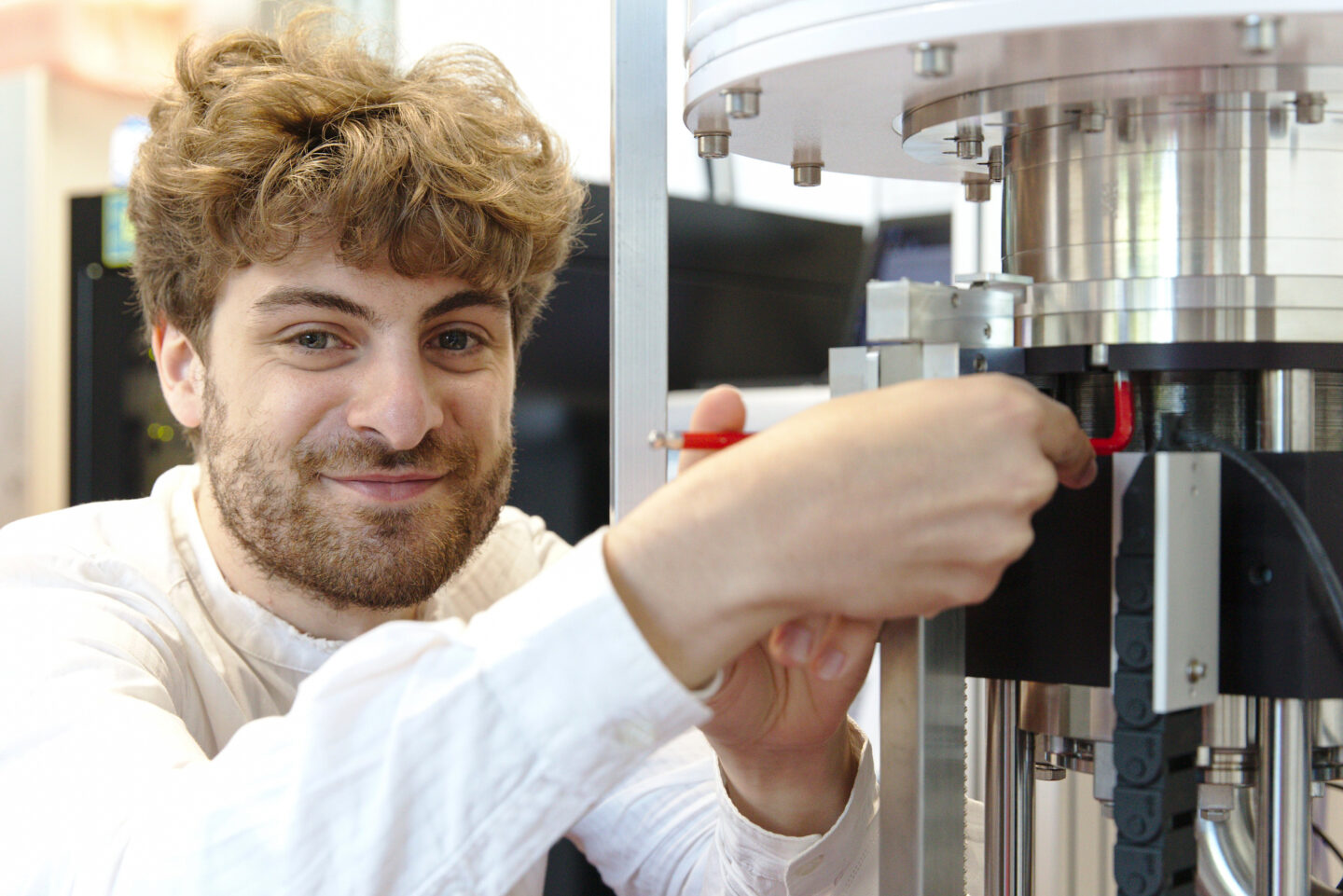
The second awardee, Marco Valentini from Oleggio near Milano in Italy, gave his thesis the title “Mesoscopic phenomena in hybrid semiconductor-superconductor nanodevices. From full-shell nanowires to two-dimensional hole gas in germanium.” His supervisor Georgios Katsaros underlines his contributions to several open questions in the field: “Marco has already published as first author in Science, Nature, and Nature Communications. His work has been highlighted in Physics World and in Quanta Magazine. All in all, Marco has been a ‘force of nature’ and it has been a huge privilege to have him as a student in my group.”
Awardee Valentini also underlines the good cooperation and mentorship: “My greatest scientific achievements have been accomplished at ISTA under the supervision of Prof. Katsaros. They would not have been possible without his guidance and the top-notch facilities at ISTA. And winning this award is the cherry on top,” he says. He plans to take that drive also to his new position in the USA: “Now that I have started my postdoc at University of California, Santa Barbara, I am diving into a whole new world of research. Instead of semiconductor/superconductor devices, I am working with graphene. But my main goal has not changed: I’m still all about chasing down those non-abelian anyons.”
Several faculty offers before thesis defense
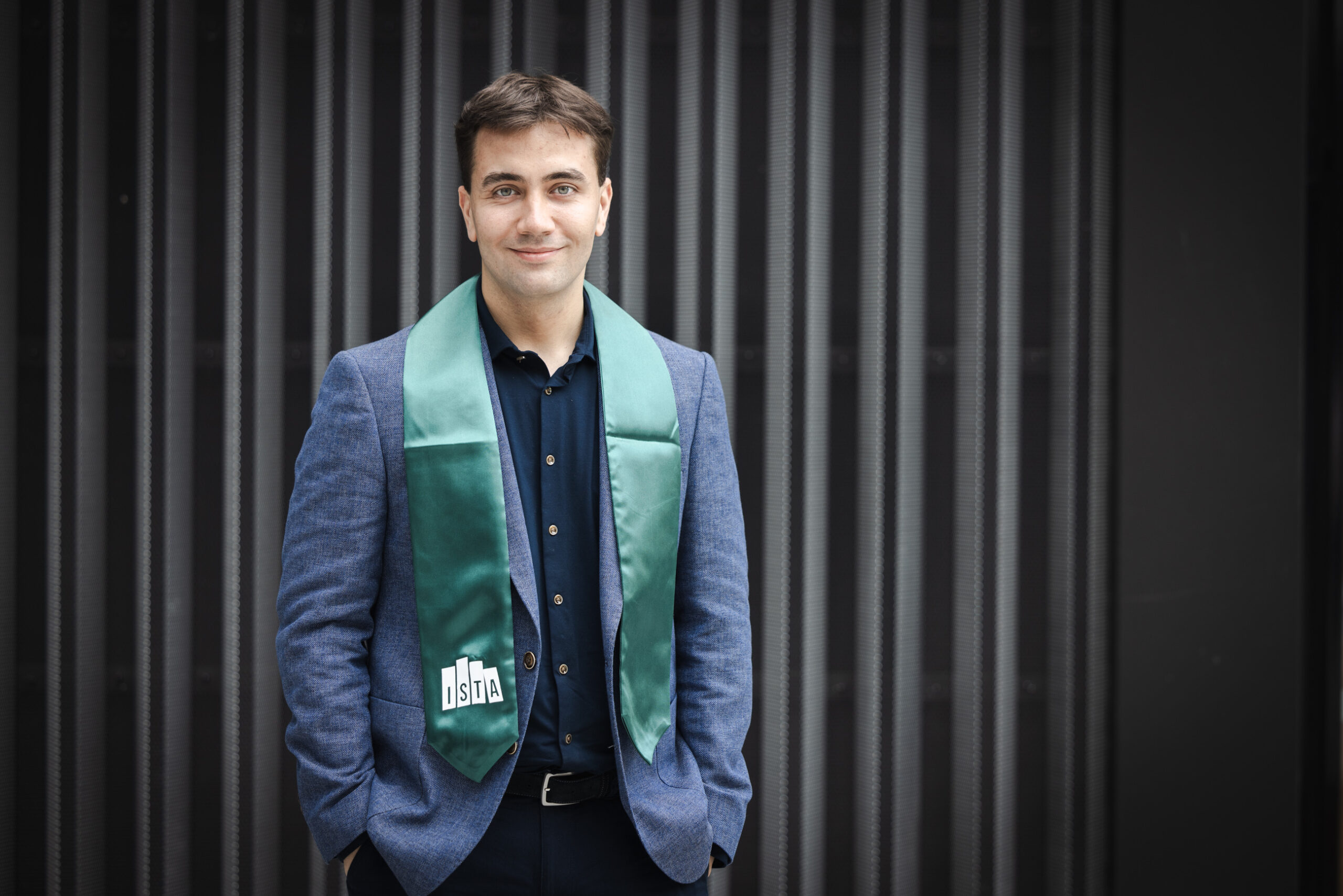
Djordje Zikelic from Belgrade, Serbia, did his PhD in the research group of Krish Chatterjee at ISTA, co-supervised by Petr Novotný from Masaryk University (Czechia). He wrote about “Automated Verification and Control of Infinite State Stochastic Systems”. His supervisor underlines the relevance of Zikelic’s research for the safety of control systems of autonomous agents and vehicles, such as cars or drones. “Djordje’s publication record as a PhD student matches what one usually reaches as Assistant Professor after a few years. Already before his thesis defense, he received several faculty offers. He has now decided to join Singapore Management University (SMU), where he will be growing a research group that will continue doing research that helps programmers build safe and trustworthy software and AI systems.”
“My PhD work spans several fields of computer science, so it is not constrained by classical boundaries between these areas,” says Zikelic. “ISTA truly encourages interdisciplinary research, and my time here was instrumental for my growth into an interdisciplinary researcher,” he says. “I see this award as a recognition that my work is meaningful and impactful, and it is a great motivation booster to continue doing what I am passionate about. I am very grateful to the scientific community at ISTA for this recognition.”
From ISTA Postdoc to successful entrepreneur
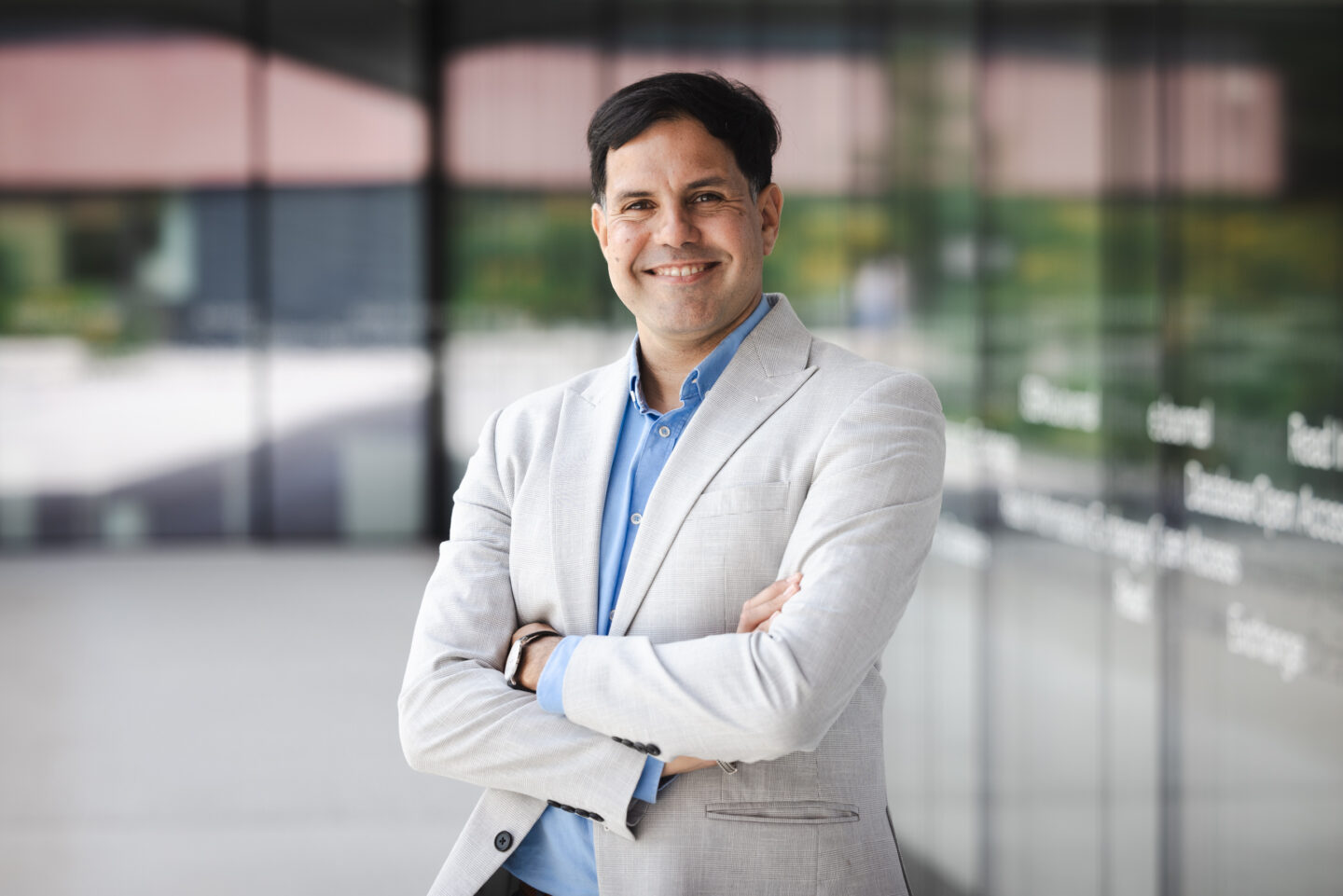
The ISTA Alumni Award honors the outstanding achievements of those who have spent their PhD or Postdoc at ISTA and have moved on to careers elsewhere in academia or business. This year’s Alumni Award goes to Harold P. de Vladar, who was with the Institute from 2009 to 2013, as one of the first postdocs. “Harold is a perfect example of a scientist who turned a need he observed in the lab into a business opportunity and then acted upon it in a very impressive way,” says Markus Wanko, Managing Director of xista, the tech transfer ecosystem of ISTA, where Vladar’s entrepreneurial career took off. This is also underlined by ISTA professor Nick Barton, with whom Vladar cooperated also after his PostDoc: “Harold gives an outstanding example of how fundamental research can translate into practical application.”
The Hungaro-Venezuelan Vladar is the founder and until recently CEO of Ribbon Biolabs. The company, that has attracted funding from several investors, is developing methods for the automated synthesis of long strands of DNA consisting of over 5,000 base pairs. These DNA molecules are needed in a wide range of applications across research, drug discovery, and synthetic biology. “Establishing Ribbon Biolabs is, of course, one of my biggest achievements,” Vladar states. “Currently, I am starting my second company. I see myself doing this again and again, taking on scientific challenges that can be developed into technologies that bring benefits to industry or society.” This drive for growth is something that connects him with ISTA: “I worked with such amazing people at the Institute. I like to think of ISTA as a metaphor for development and growth: My first office was a in the facility management on the top floor together with another couple of Postdocs, and now I see a growing campus that is immensely beautiful. This inspires me,” he says. “I want to give the message to the current graduates to think big and to act big in whatever you want to achieve in life”.



